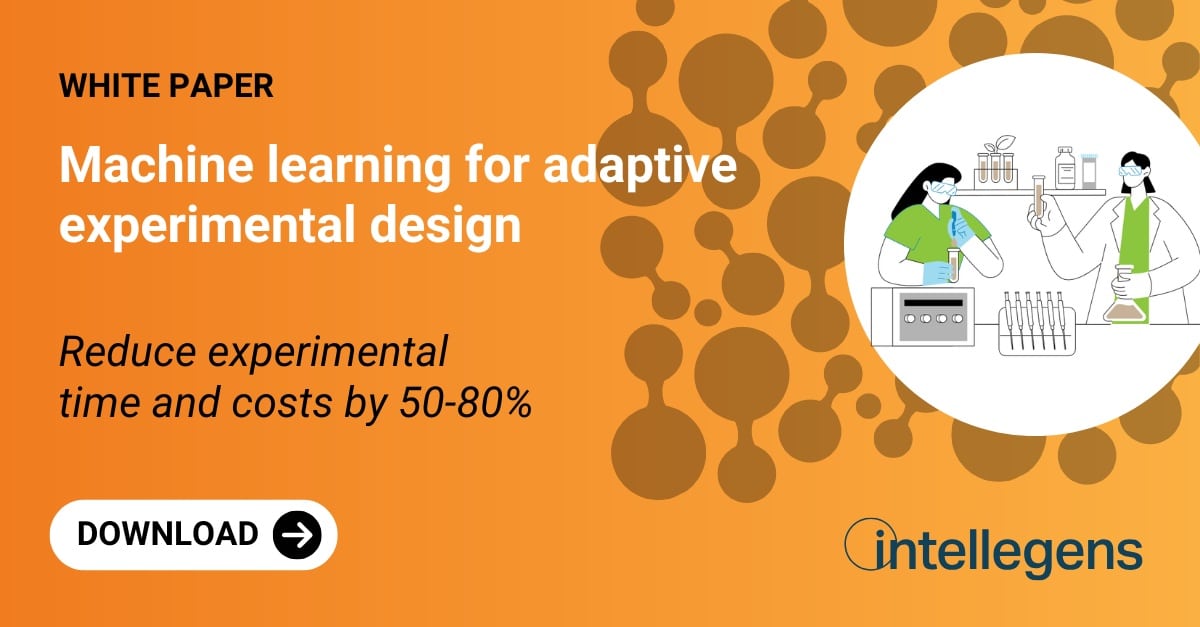White Paper
Reducing experimental time and cost by 50-80%
What are the optimal composition, chemistry, or processing parameters to achieve commercial performance goals? Answering such questions as quickly as possible is key to the design of formulations, chemicals, materials, and biopharmaceuticals. Traditional approaches suffer from key disadvantages. Expert-driven design is labor-intensive and time-consuming. Single-factor analysis misses the effects of correlation between factors. Conventional Design of Experiments is exhaustive but focused on covering the design space rather than rapidly achieving performance goals.
Machine learning identifies improved products and processes much faster than traditional methods by enabling an adaptive approach that focuses experimental effort on those routes most likely to be successful. Since experimental costs associated with a typical industrial R&D project run to hundreds of thousands of dollars, the resulting 50-80% reduction in experimental workload delivers significant return on investment.


